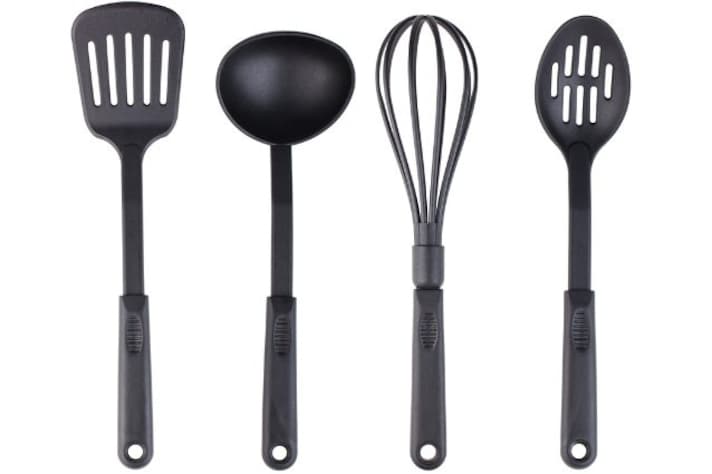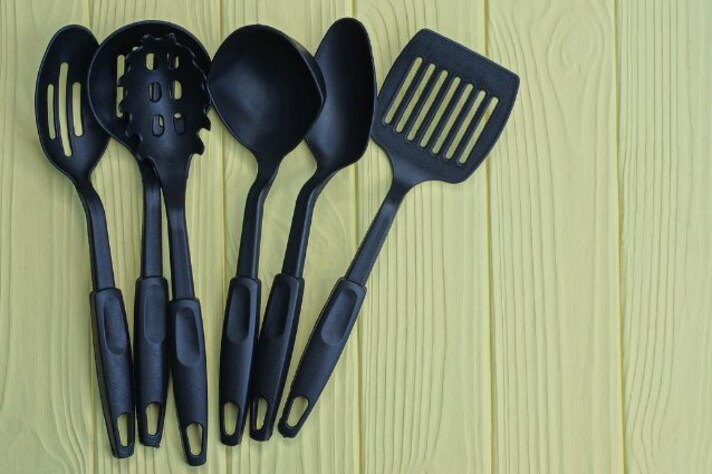
Black plastic kitchen utensils, from spatulas to slotted spoons, are popular for their non-stick friendliness and affordability. But recent research has raised concerns about the safety of these tools, as they may contain toxic chemicals from recycled electronic waste. Unlike other types of plastic, black plastic often includes recycled materials, and the dark pigmentation can mask contaminants, making it difficult to detect harmful chemicals.
What Harmful Chemicals Are Found in Black Plastic?
Studies have revealed that black plastic utensils can sometimes contain brominated flame retardants and heavy metals like lead and cadmium. These chemicals are commonly used in electronics to prevent overheating but can be toxic when ingested over time. When black plastic is recycled from electronic waste, these substances can make their way into kitchen products.

Brominated Flame Retardants
These chemicals help reduce flammability in electronic devices, but exposure to them over time is linked to hormone disruption and neurological issues.
Heavy Metals
Lead and cadmium are particularly concerning, as both are toxic and can accumulate in the body. Even low-level exposure can pose risks, especially for children and pregnant women.
How Can These Chemicals Affect Your Health?
When exposed to high heat, black plastic utensils can start to release embedded chemicals, allowing them to leach into the food we cook. Over time, this leaching process increases as utensils wear down, creating small cracks or scratches where chemicals can seep through. This is especially common in black plastic due to the nature of its recycled materials, which can include additives like flame retardants and heavy metals.
Long-term exposure to these toxins has been associated with health issues such as hormonal imbalances, neurological problems, and an increased risk of cancer. While research into the full effects is ongoing, many health experts recommend reducing exposure where possible.

Tips for a Safer Kitchen
To reduce exposure to potentially harmful chemicals, consider these safer alternatives.
Opt for utensils made from stainless steel, wood, or silicone, which don’t carry the same risks as black plastic. If you’re using black plastic utensils, keep them away from high-heat cooking methods to minimise chemical leaching. Some black plastic utensils are marked as BPA-free, though this doesn’t guarantee they’re free of other toxins. Still, it’s a step toward safer choices. Plastic utensils degrade over time. If you notice wear, warping, or scratches, it’s best to replace them to reduce the risk of chemical exposure.
A sleek look doesn’t always mean safe – keep an eye on your kitchen tools, and make choices that protect you and your family!
;Resize,width=767;)
